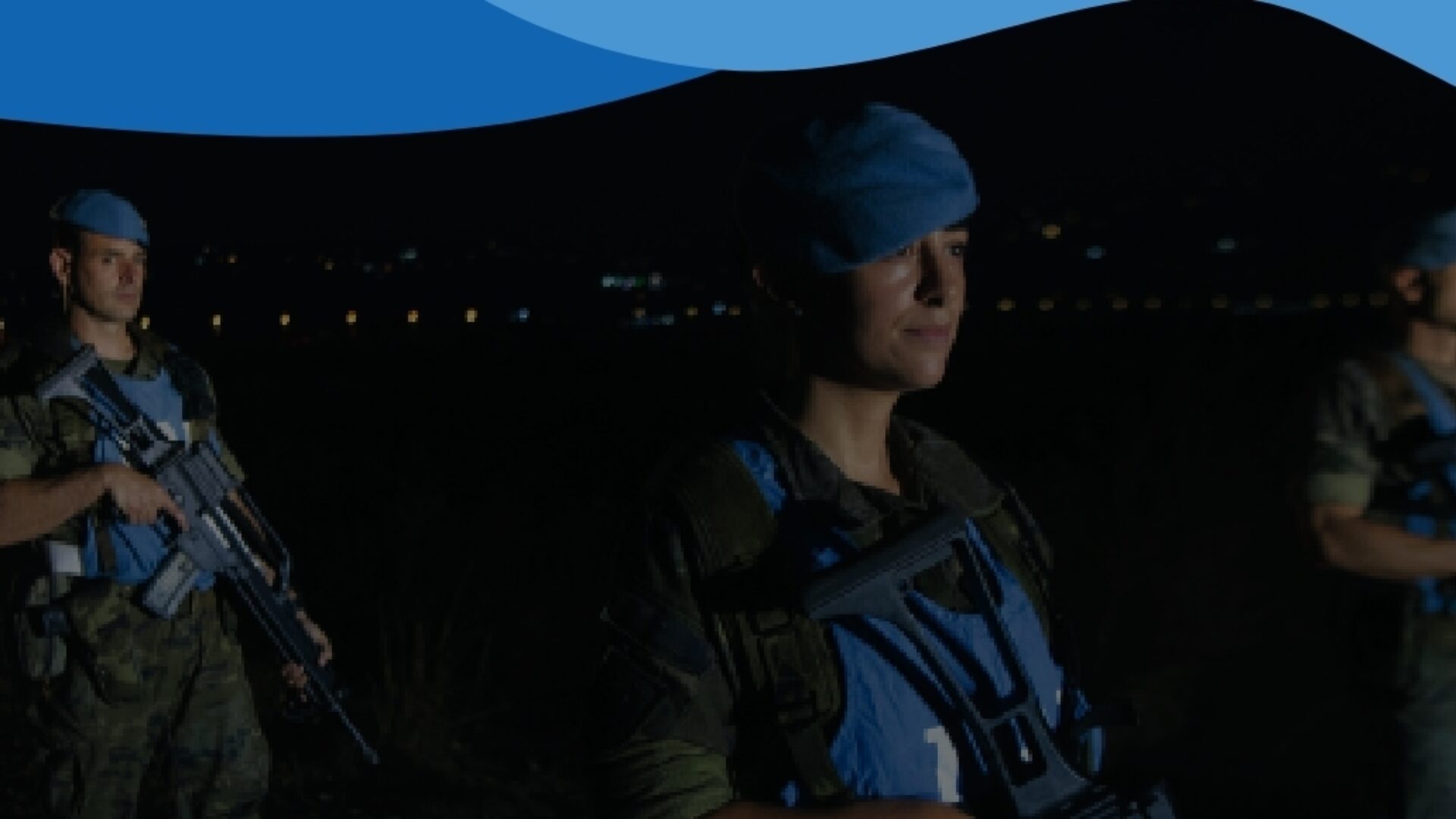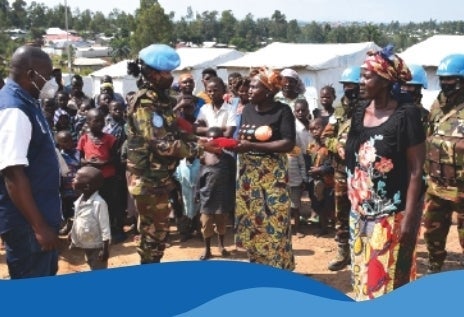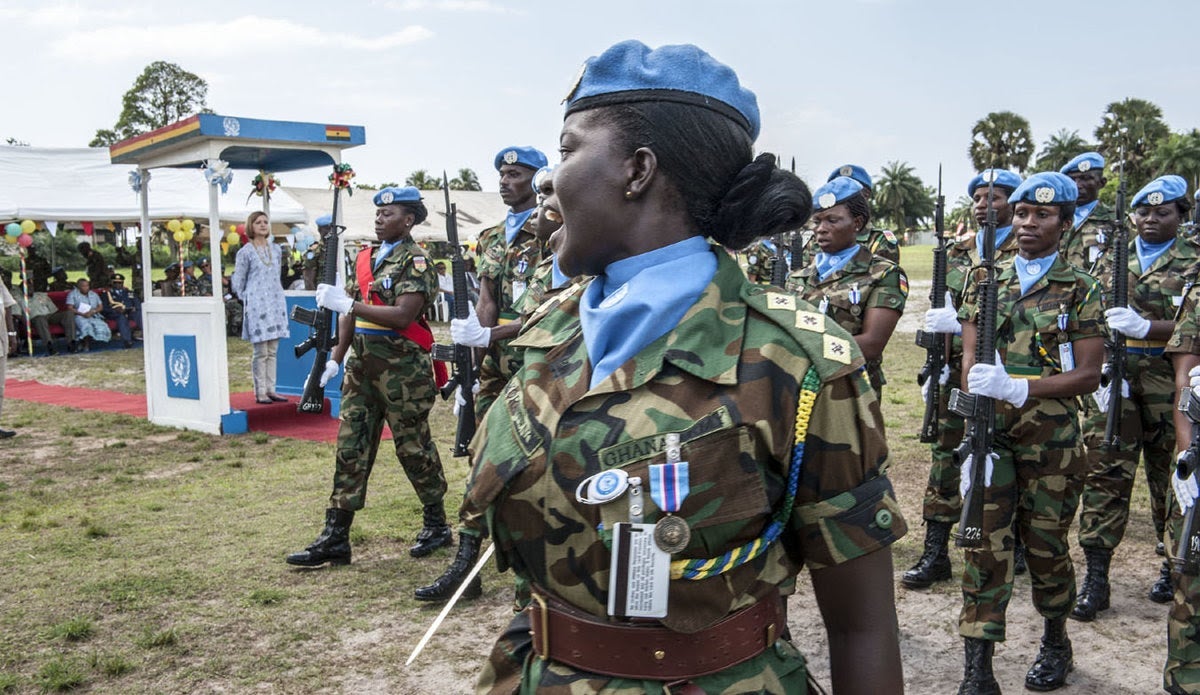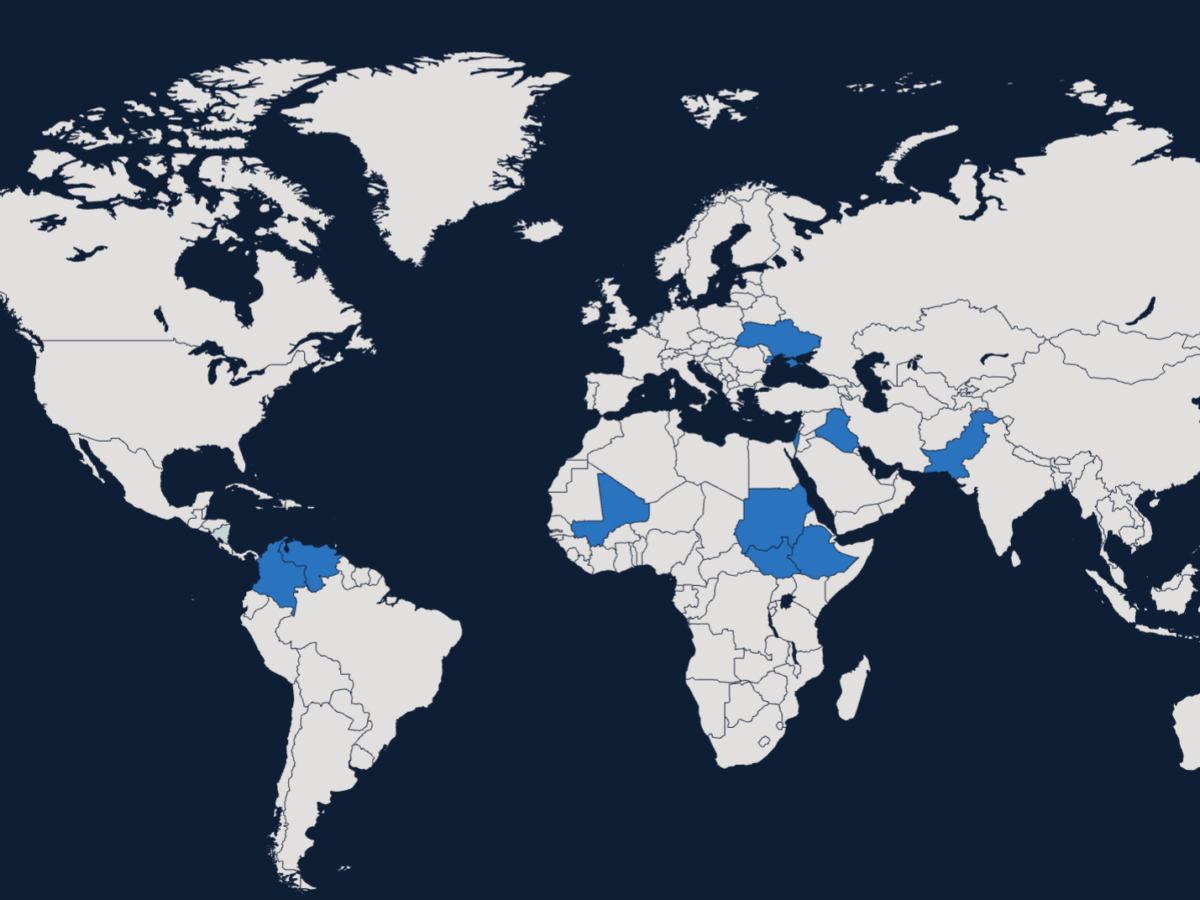Gendered Impacts on Operational Effectiveness of UN Peace Operations

Currently, women are underrepresented in peacekeeping. As of January 2021, women make up fewer than 5% of all military personnel, 11% of personnel in formed police units, and 28% of individual police officers on peacekeeping missions.
And yet, the authors find that across various missions, women’s participation improves community engagement and changes the narrative of women’s roles in society. The report offers recommendations on how gender mainstreaming and the integration of local perspectives can improve operational effectiveness, along with recommendations for better data collection policies and practices.
This study is based on 78 interviews of mission personnel from three ongoing UN PKOs in Cyprus, the Democratic Republic of the Congo, and Lebanon, along with civil society actors, and a comprehensive review of personnel data, strategy, policy, and standard operating procedure documents related to operational effectiveness.
Key Findings
- Both men and women highlighted uniformed women’s importance for interacting with local women and girls to build trust with communities. Women peacekeepers have also changed community perceptions of what jobs men and women should perform.
- However, the campaign to depict women as ‘more effective’ peacekeepers has incited resentment, hostility, and a sense of disenfranchisement amongst male personnel. A common refrain among the uniformed women we interviewed was that there was no room for error in women’s performance, as individual work reflected upon all women. One uniformed officer likened the experience to being “contestants on a show,” as women are watched and applauded while performing routine tasks.
- Deployed uniformed personnel, both men and women, report that the most essential skills for operational effectiveness are communication skills and not inherently gendered.
Policy Implications
 Our policy brief includes recommendations to improve UN PKO operational effectiveness by conducting comprehensive gendered conflict analyses, performing comprehensive gendered organizational analyses, and systematically soliciting and integrating local input. Recommendations for better UN PKO data collection policies and practices include collecting gender-disaggregated data on UN activities, undertaking a systematical analysis of qualitative gender data, establishing mechanisms of community input, and improving internal access to data and reporting.
Our policy brief includes recommendations to improve UN PKO operational effectiveness by conducting comprehensive gendered conflict analyses, performing comprehensive gendered organizational analyses, and systematically soliciting and integrating local input. Recommendations for better UN PKO data collection policies and practices include collecting gender-disaggregated data on UN activities, undertaking a systematical analysis of qualitative gender data, establishing mechanisms of community input, and improving internal access to data and reporting.
Case Studies

In deployed PKOs, existing protocols place the burden for implementing gender-responsive policies on gender affairs personnel and upper-level leadership without the necessary financial and institutional support.
United Nations Organization Stabilization Mission in the Democratic Republic of the Congo (MONUSCO)
United Nations Peacekeeping Force in Cyprus (UNFICYP)
United Nations Interim Force in Lebanon (UNIFIL)
Read our launch event press release, or view the full discussion with H.E. Jean-Pierre Lacroix, UN Under-Secretary-General for Peace Operations; Ms. Gwyn Kutz, Director General for the Peace and Stabilization Operations Program, Global Affairs Canada; Dr. Robert U. Nagel, Postdoctoral Research Fellow, Georgetown Institute for Women, Peace and Security; Major General Cheryl Pearce, Former Force Commander, United Nations Peacekeeping Force in Cyprus (UNFICYP); Ms. Sophie Stecher, Chief of the Comprehensive Approach Coordination Unit, United Nations Organization Stabilization Mission in the Democratic Republic of the Congo (MONUSCO); and Dr. Afaf Omer, Senior Gender Advisor, United Nations Interim Force in Lebanon (UNIFIL).
This research was generously supported by Global Affairs Canada’s Elsie Initiative for Women in Peace Operations. We are grateful to all the UN personnel in the field and in New York for their participation and support of this research project.
Authors
- Dr. Robert U. Nagel, Postdoctoral Fellow, Georgetown Institute for Women, Peace and Security
- Ms. Kate Fin, Research Assistant, Georgetown Institute for Women, Peace and Security
- Ms. Julia Maenza, Research Assistant, Georgetown Institute for Women, Peace and Security
Acknowledgements
The authors would like to thank Ana Maria Garcia Alvarez at the UN Department of Peace Operations for her help and support with contacting the missions. We are grateful to all the UN personnel in the field and in New York for their participation and support of this research project. We are equally grateful to the various members of civil society for their time and participation in this research. We thank our partners Liezelle Kumalo and Annette Leijenaar at the Institute for Security Studies for their invaluable contributions to this project. We would also like to thank Nina Wilén, Allard Duursma, and John Karlsrud for their service as external reviewers. We are grateful to Melanne Verveer, Jeni Klugman, Agathe Christien, Jessica Smith, Elena Ortiz, Emma Jouenne, Vanessa F. Newby, and Lotte Vermeij for their support, feedback and comments at various stages of the research. Special thanks to the participants of the virtual ‘Bridging Theory and Practice’ workshops held in April 2020 for their input and feedback on this project. This work would not have been possible without the financial support of Global Affairs Canada’s Elsie Initiative.
Explore More

Voices from the Margins

Conflicts and Trends to Watch in 2026
